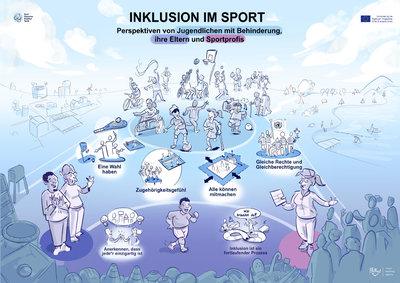In den Niederlanden sind Immigranten längst eine Zielgruppe auf dem Wohnungsmarkt. Architekten und Wohnungsbaugesellschaften haben, so scheint es, zunehmend weniger Berührungsängste gegenüber nicht-westlichen Bautraditionen. Wohnanlagen wie „Le Medi“ und „De Oriënt“ könnten Modelle sein für die Aufwertung migrantischgeprägter Viertel: Mit einem expressiven Formenvokabular und halböffentlichen Außenräumen sprechen sie eine neue städtische Mittelschicht an, die aus sehr unterschiedlichen Gründen nicht in die Suburbia ziehen will.
DOCUMENT

In diesem Beitrag wird beschrieben, wie in den Niederlanden die Fächer Medien- und Kommunikationsethik gelehrt werden.
DOCUMENT

This article presents results of a qualitative analysis based on biographic narratives of three young, well-educated women from Syria. They arrived in the Netherlands between 2015 and 2017 in the context of family reunion. The central question is how young Syrian women navigate between two major projects that ask for their agency, being family and work. It is argued that both occupational career development and the building of a family are ‘agentic projects’ that aim to contribute to the establishment of a new life and to regain continuity. The analyses demonstrate that both projects are closely intertwined. Agency emerges as highly relational and intersecting with the women’s position in the life course, timing of life events, ability to adapt career goals to the new situation, and impact of social contexts on family relations.
LINK
-
DOCUMENT
Substantial structural changes have recently taken place in the Dutch social workterrain. Now the local governments have autonomous responsibility for the self-sufficiency and social inclusion of the elderly and the disabled people. This ‘transformation’ requires remodelling social services and hence investigation of its effects: practice-oriented research. Due to the binary character of the Dutch higher education system this kind of research almost exclusively takes place at universities of applied sciences whose research tradition only goes about a decade back. In order to preserve the values of the Dutch care system, that always sought to protect the vulnerable citizens, it is important that the practice-oriented research into the social domain is well-executed and that its results are directly translated in the curricula of the professional education. This calls for a targeted impulse to expanse the research activities at the universities of applied sciences, a closer cooperation with the research universities and direct connections with (local) care providers
DOCUMENT
Es war wichtig, die authentischen Ansichten, Wünsche und Empfindungen von Jugendlichen mit Behinderung in Bezug auf Inklusion im Sport zu erhalten. Daher wurden Online-Fokusgruppen mit Kindern und Jugendlichen mit einer Behinderung, ihren Eltern und Expert*innen im Sportbereich in Finnland, Litauen, Portugal und den Niederlanden durchgeführt. Aus diesen Interviews wurden sieben Themen bezüglich Inklusion im Sport identifiziert, die im Folgenden einzeln erläutert werden.
DOCUMENT

Jeugdcultuur in Nederland. Duitstalige website over jeugdcultuur in Nederland. Over de verschillende hangplekken die jongeren traditiegetrouw creëren in oude schuren, afgedankte containers, caravans, onder afdakjes en bushokjes. 'Hangen' is van alle tijden, staat voor elkaar ontmoeten buitenshuis, zonder toezicht van volwassenen. De inhoud verscheen eerder als deel 27 in de reeks Het Alledaagse Leven. Tradities en trends in Nederland (Waanders Uitgevers).
DOCUMENT
Lezing voor de Vereinigung fuer Jugendfragen (Zug, Zwitserland, 22-11-2000. Verschillende vormen van ambulant jongerenwerk worden voor het voetlicht gebracht tegen de achtergrond van nieuwe ontwikkelingsopgaven voor jongeren, de cultuurpolitieke context van het jongerenwerk en onderzoek naar vrijetijdsgedrag en jeugdculturele levensstijlen van jongeren.
DOCUMENT
In this article the work of power through discourse in music education in primary schools in the Netherlands is examined. After introducing the central concepts of culture, practice, discourse, and power, the current dominant musical discourse in the Netherlands is presented as expressed in three nested perspectives: the perspective of music as a specialist domain, the perspective of music as (essentially instrumental) performance, and the perspective of music as Art. Then, a central document in current music educational developments in Dutch primary schools is analyzed. It is demonstrated that specifically the perspectives of music as a specialist domain and (partly) music as (instrumental) performance have a strong presence in the document. The article finishes with calling for more attention to the workings of dominant musical discourse in music pedagogical debates.
LINK
Vanaf februari 2024 tot en met mei 2024 is een onderzoek uitgevoerd als afstudeeropdracht voor de opleiding Archeologie aan de hogeschool Saxion te Deventer. Het doel van het onderzoek was het maken van een inventarisatie van de sporen van de bezettingstijd binnen de gemeente Den Haag. Daarnaast is ook een adviesrapport opgesteld over hoe de gemeente haar beleid kan verbeteren met betrekking tot restanten uit de bezettingstijd De inventarisatie is uitgevoerd naar restanten van de Duitse Atlantikwall en het daarmee samenhangende Neue Landfront. Deze restanten zijn beschreven, ingedeeld per complex en onderzocht op hun aanwezigheid in het landschap. De inventarisatie was belangrijk voor de gemeente Den Haag, omdat deze kennis niet aanwezig was. Hierdoor is het voor de gemeente niet altijd makkelijk om een besluit te nemen, over hoe om te gaan met deze restanten. Dit heeft de afgelopen jaren geleid tot het slopen van verschillende restanten. Het huidige onderzoek richtte zich op de gemeente Den Haag en een klein gedeelte van de gemeente Wassenaar, omdat een stuk van Wassenaar deel uitmaakte van de voormalige Stützpunktgruppe Scheveningen. Het onderzoek is uitgevoerd op basis van de hoofdvraag: “Welke restanten van de Atlantikwall dienen te worden opgenomen in het archeologiebeleid van de gemeente Den Haag?”
MULTIFILE